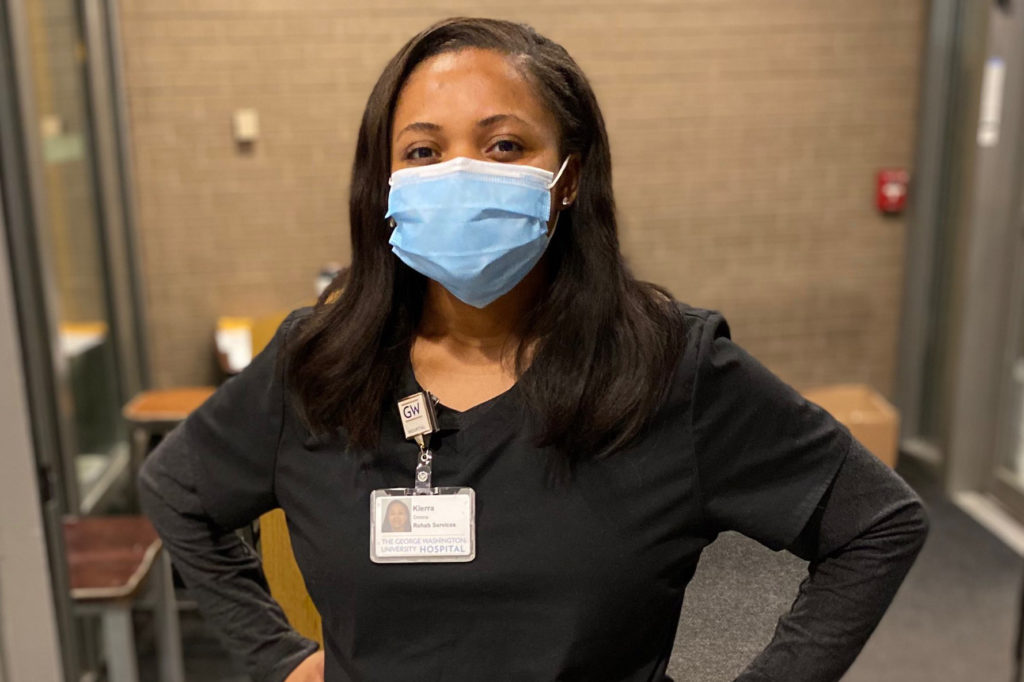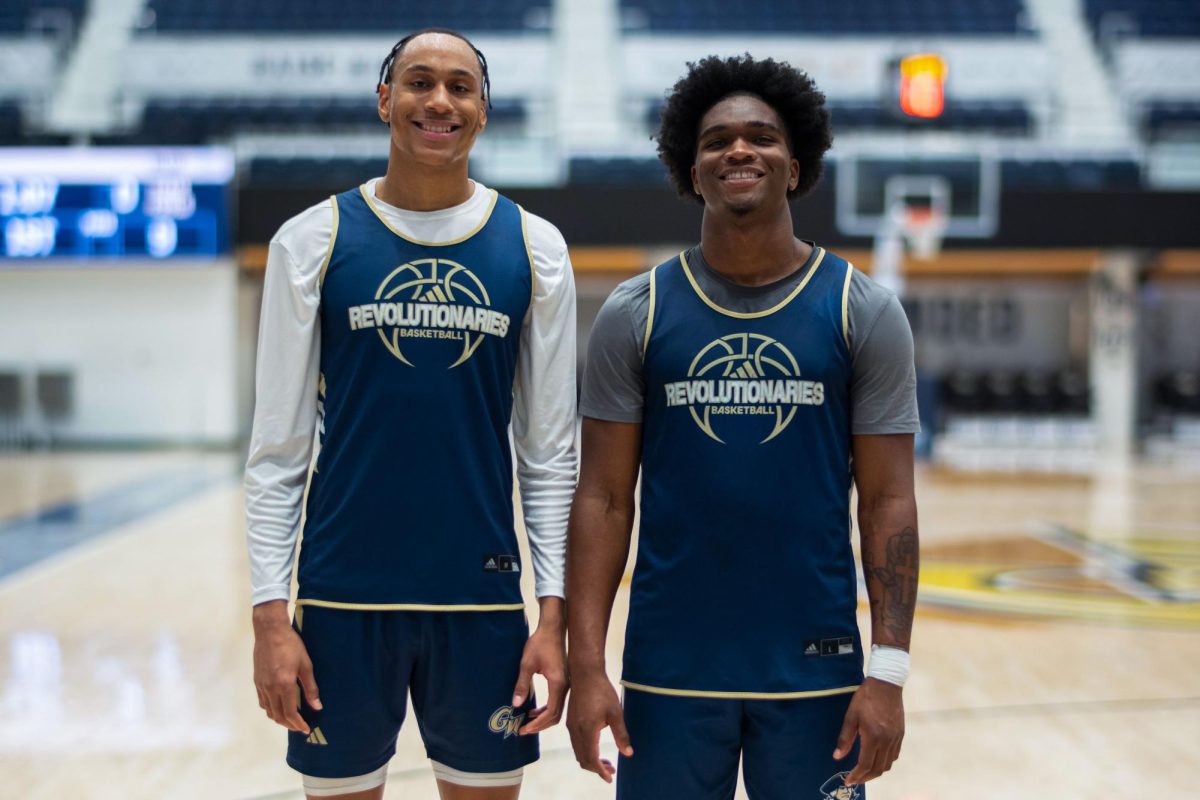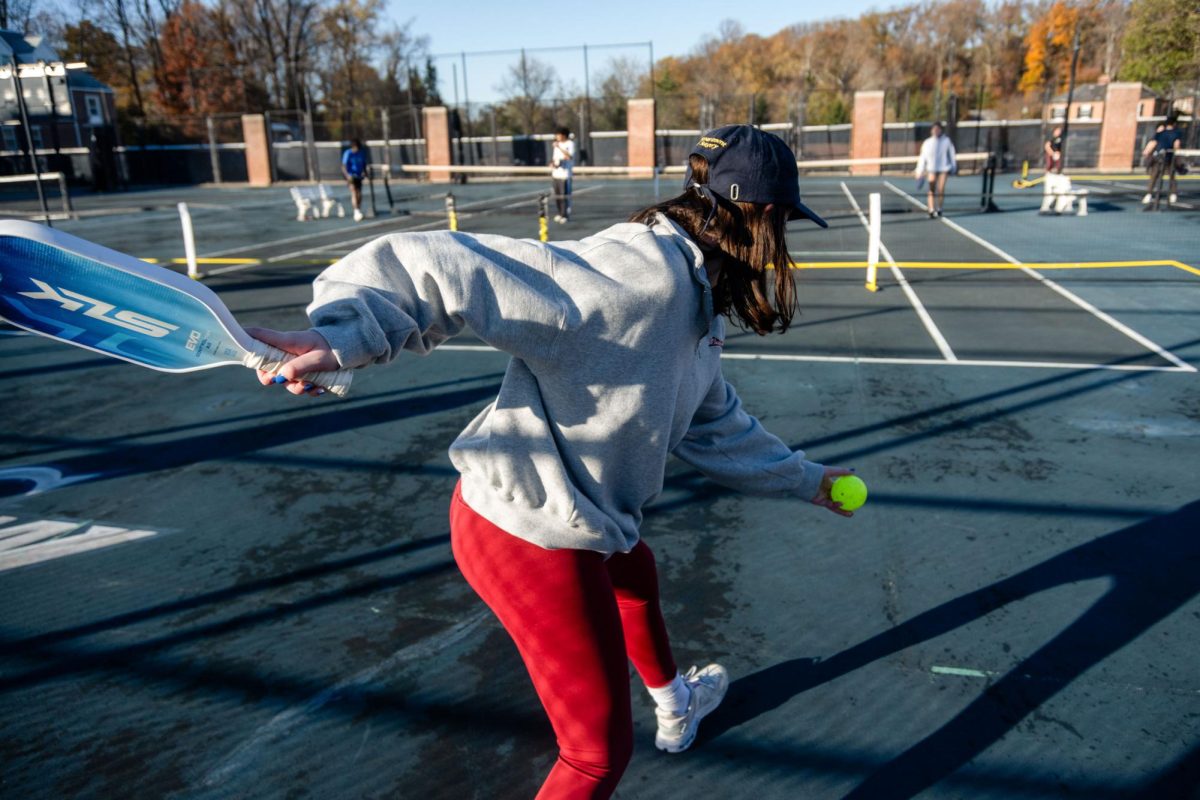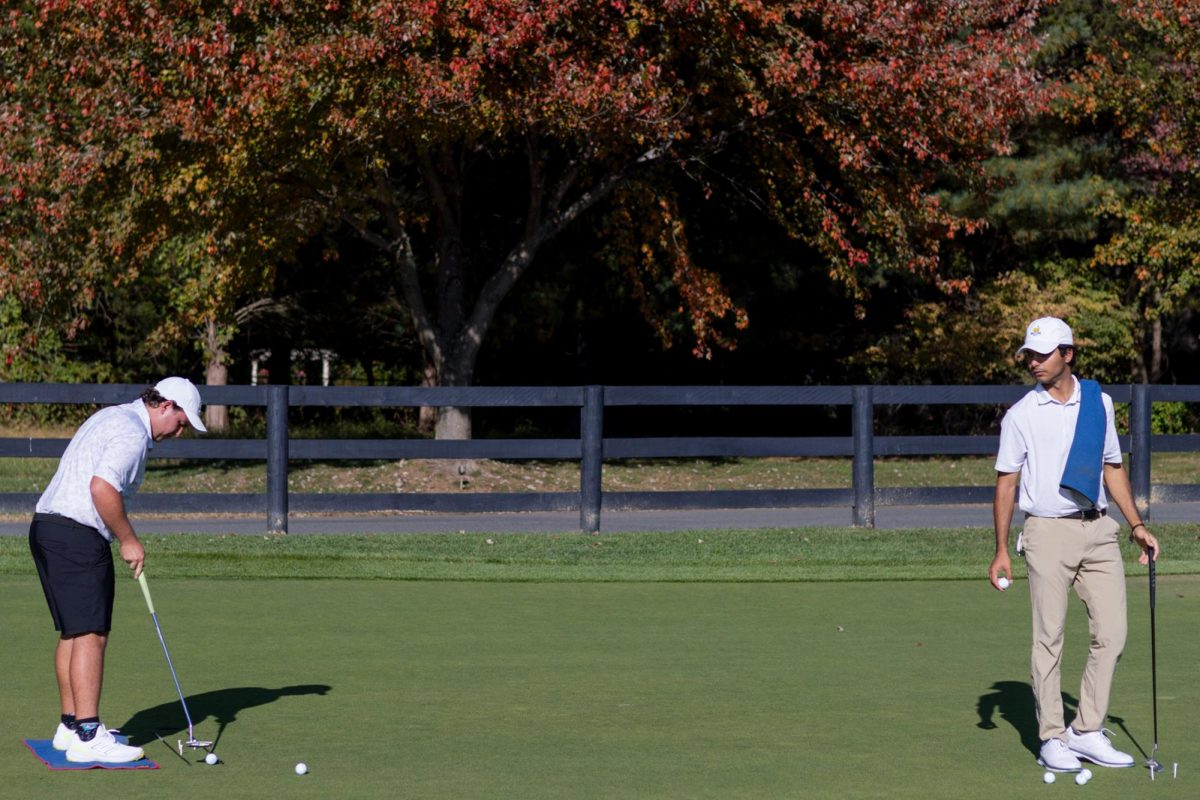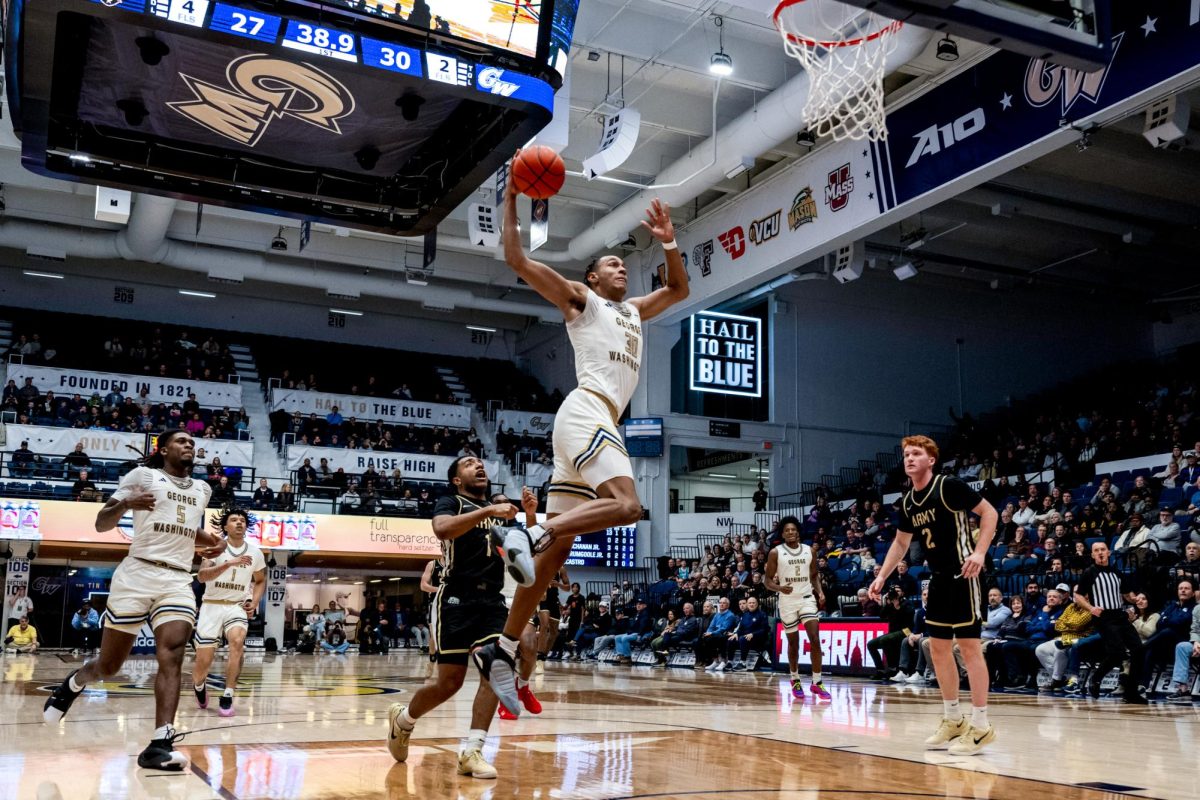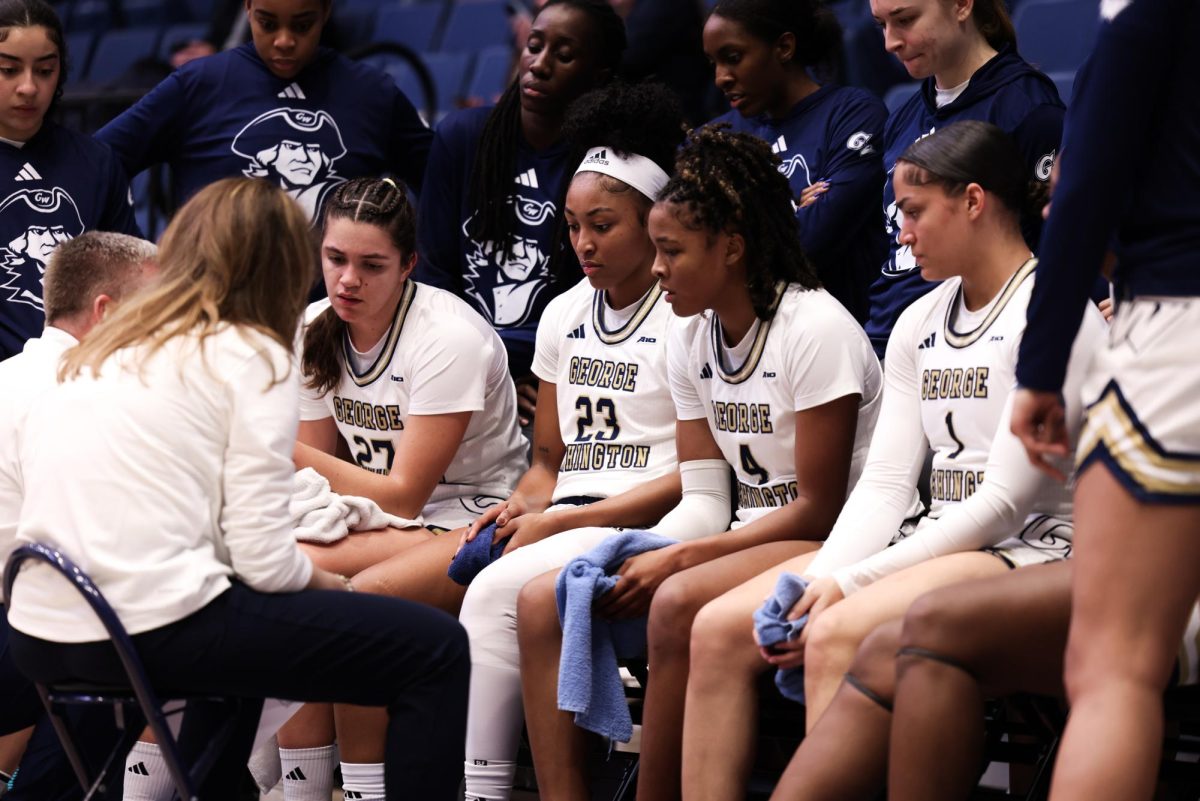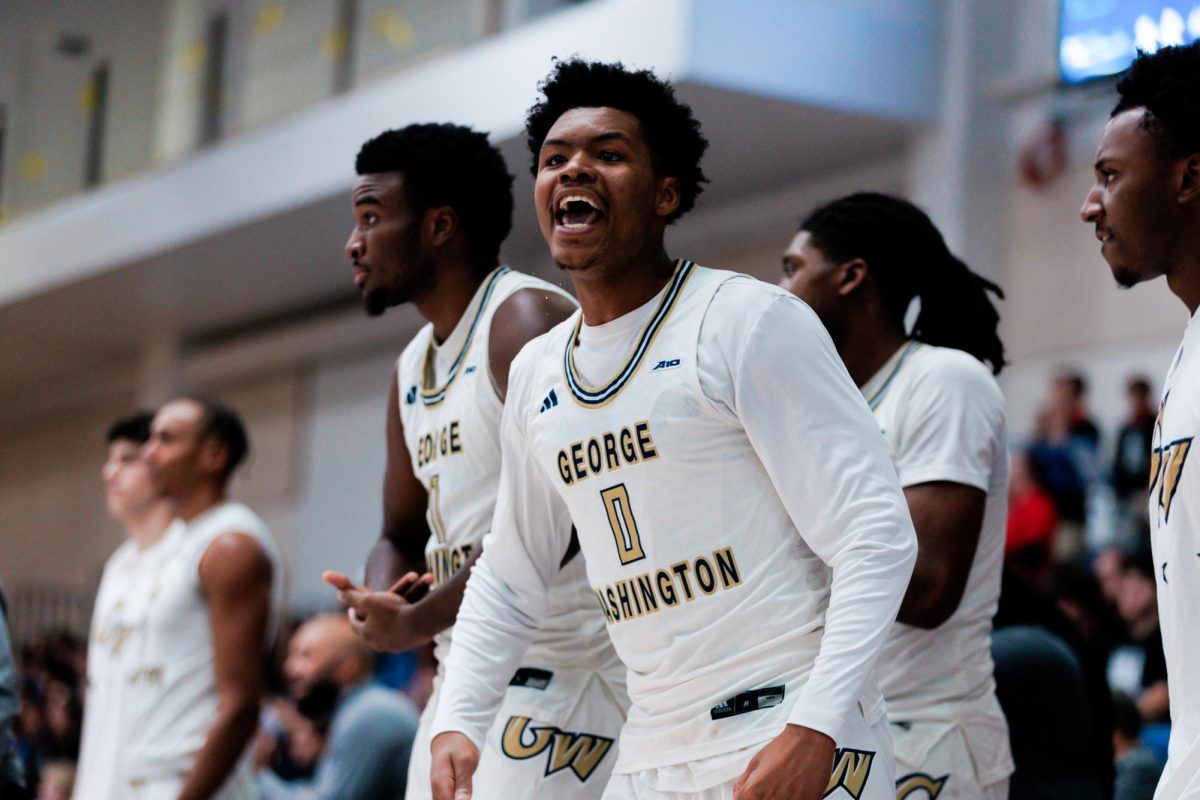As the onset of the COVID-19 pandemic pauses college sports, athletic department personnel specializing in health and wellness are putting their expertise to use at the GW Hospital.
Assistant athletic trainers Chris Duncan and Kierra Croons have begun assisting medical staff at the hospital with screening COVID-19 patients and maintaining safety protocols. The two said they serve as a “first line of defense” against further infection by screening incoming patients and helping out wherever needed throughout the hospital.
“I don’t want to make a mistake and risk providing someone entrance to the hospital and then risk infecting eight people,” Croons said. “That’s the ratio – one person could have it and you get eight more people that could be infected right away.”
Croons said she spends most of her shifts in the lobby and the emergency department of the hospital, screening and evaluating incoming patients for COVID-19 symptoms. She checks temperatures, asks patients where they’ve traveled in the past two weeks and if they’ve come into contact with a confirmed case. She said if people provide answers that indicate they were infected with the virus, she is required to deny them entry and seek out further medical help.
The National Athletic Trainers Association, the organization that certifies athletic trainers like Croons and Duncan, emphasizes five main focus areas – wellness promotion and illness and injury prevention, examination, assessment and diagnosis, immediate and emergency care, therapeutic intervention and health care administration and professional responsibility. Croons said her training has helped prepare her to fight the pandemic.
“As an athletic trainer, you have to abide by those five domains and apply them to every aspect of your work,” Croons said. “Now, I’m taking those five domains and I’m applying it in this setting.”
Duncan, who has worked as a GW athletic trainer since 2006, said he has found himself at ground zero of a “trickle-down disaster.” But like Croons, he said his previous experience has made him well suited to help tackle the pandemic and respond to emergency situations.
“If it came to needing release for one of the persons who is resuscitating somebody in the ER, they can easily put the [personal protective equipment] on us and we can go in and relieve them and try to keep that person going,” Duncan said.
As a safety officer at the GW Hospital, Duncan said he ensures medical workers are properly wearing their personal protective equipment, like masks or shields.
Duncan said he performs temperature checks at entryways, assists with the transfer of PPE shipments and oversees the proper safety procedures medical staff need to follow to wear and remove PPE. Duncan added that taking off PPE is a big concern across the hospital because people could be exposed to the virus after removing the gear.
“It’s really easy to put it on, but once you’ve contaminated it, people tend to just sling it off and throw it anywhere just to get it off,” Duncan said. “But we have to teach them to bunch it up and take it off properly, and not to let it be exposed because it may seem like not a big deal but with this virus, even just flinging it around, the air passes it around. It’s worse than wildfire.”
Duncan said his close proximity to the virus’ epicenter has given him a clear view of the reality of the pandemic.
Government officials said D.C. is projected to become a hotspot for the pandemic in the coming weeks.
“If somebody else was in my shoes perhaps they’d realize, ‘Oh, maybe I should stay home, this is what’s really happening,’” Duncan said. “It’s hard to picture at first when all this was going on, when they were shutting down the NBA and things like that, but then you’re here and it makes perfect sense.”
Both assistant athletic trainers maintain their responsibilities with the athletic department while working for the hospital, they said. Croons and Duncan said they meet regularly with student-athletes online to oversee physical therapy sessions and are in contact with their GW sports colleagues during the transition home.
The duo added that their continued work with GW athletics has helped them maintain a sense of “normalcy.”
“Virtually, I’m able to be a part of the athletic world, which is nice because I don’t feel isolated at the hospital,” Croons said. “I have an outlet that I’m used to doing.”


